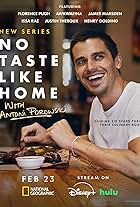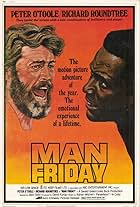EUyeshima
Joined Jun 2004
Welcome to the new profile
We're still working on updating some profile features. To see the badges, ratings breakdowns, and polls for this profile, please go to the previous version.
Ratings1K
EUyeshima's rating
Reviews1K
EUyeshima's rating
There's such a fine line between truly dark comedy and highly graphic violence that the smallest misstep can offset the precarious balance and significantly throw off the flow of the narrative. Quentin Tarantino didn't invent this kind of tightrope approach, but he has obviously inspired filmmakers like Dito Montiel who directed this arresting albeit tonally erratic 2025 film. He has recruited a stellar cast to populate John Pollono's chaotic screenplay about a particularly dysfunctional extended family headed by Vincent, a former criminal living what appears to be a comfortable life in Maine with his officious current wife Sandy and overly curious Dartmouth-bound son DJ. However, things get complicated when his former family reenters his life: his sour, foul-mouthed ex-wife Ruth, their hot-headed son Rocco, and Rocco's very pregnant Italian girlfriend Marina. Matters go from bad to worse with a couple of hit men on Rocco's tail for a violent episode that brings all the dysfunctional elements into a full circle of impending violence. In the film's most heinous role as the senior hit man Hannigan, Bill Murray delivers his venom with aplomb, while Pete Davidson provides the right-level comic foil as his partner Lonnie. Ed Harris is appropriately stoic as Vincent, while Gabrielle Union delivers her character's unspoken resentment with sharp intelligence. Miles J. Harvey does a nice cunning turn as DJ, but the film's true scene stealer is, of course, Jennifer Coolidge as the comically cynical Ruth. The final stretch is appropriately nerve wracking and genuinely shocking, though the resolution felt somewhat contrived.
First-time feature director Marc Marriott isn't Japanese, but his early career apprenticeship with revered Ozu disciple Yoji Yamada shows through in this satisfying 2024 dramedy. Co-written by filmmaker Dave Boyle and actress Ayako Fujitani (who co-stars as Keiko), the film takes the tried-and-true fish-out-of-water trope and elevates it into a heartfelt cross-cultural transformation adventure. The plot focuses on Hideki, a driven Japanese salaryman who heads up acquisitions for a Tokyo-based chocolate company. One of his riskier moves was having the company buy a money-losing Montana cattle ranch, so he convinces his management team he can turn it around into a profitable business producing expensive wagyu beef. Accompanied by a grizzled wagyu expert too irresponsible to be helpful, Hideki travels to Montana full of arrogance that he will excite the ranchers with his brilliant venture. Of course the opposite occurs and things unravel quickly. The story evolves leisurely between the expected and the sublime, and avoiding a predictable narrative, Marriott takes a rather elliptical approach that makes the film resonate. Arata Iura affectingly makes Hideki a relatably reluctant hero, while Fujitani plays his fiancée Keiko with a nice mix of coveted warmth and unblinking efficiency given her character is also Hideki's no-nonsense boss. Robin Weigert plays the ranch manager with calm authority, and Goya Robles quietly steals the film as the sympathetic ranch hand Javier. His story is worthy of another movie. The film wraps things up a little too neatly, but that doesn't take away from its overall impact enhanced by Oscar Ignacio Jimenez's hypnotic cinematography.
Hindsight is always 20/20. Case in point: I was not that huge a fan of the 1981 ensemble comedy upon which this eight-episode 2025 dramedy series is based. Now however, the series made me appreciate Alan Alda's deft touch in maneuvering a beloved veteran cast through the machinations of the often prickly relationships among three middle-aged married couples across four vacations they share over the course of a year. The series follows the same basic storyline, even sharing the names and general personalities of the original characters (except one) and even replicating some of the same comedy gags. In regard to scripting, Tina Fey takes the reins with co-writers Lang Fisher and Tracey Wigfield, and her dry comedy instincts and clever observations are on display here but not always effectively. Not for a lack of effort by the cast, there's a nagging arm's length distance in the way the supposed closeness of the characters is conveyed. Also compromising the dynamics is the lack of equality in the way the couples are presented, for instance, playing the Alda-Carol Burnett couple, Fey as Kate appears far more alpha and nuanced than Will Forte's non-confrontational Jack. In a turn that downplays his comedy chops, Steve Carell soberly plays Nick whose middle-aged frustration triggers the primary storyline where he leaves his wet-blanket wife Anne and connects with a vibrant young dental hygienist, Ginny. The one casting twist is that the third pair has become Danny and Claude, a married gay couple in an open relationship. The opposites-attract dynamic between Colman Domingo's emotionally resistant Danny and Marco Calvani's overly unctuous Claude is similar to the fractious Jack Weston-Rita Moreno pairing but with obvious differences. The most dramatic change from the movie is the expansion of Anne as a plot catalyst. Whereas in the movie, Anne (played by the estimable Sandy Dennis) disappeared in the second vacation and was given a poignant send-off in the third, she is portrayed in the series by Kerri Kenney in a more persistent vein that evolves into an edgy ambivalence throughout the series. It becomes clear why this change occurred in the last episode when the story takes an unexpected turn that finally gives the characters a more relatable level of resonance that forces them out of their self-absorption. BTW Alda shows up in a welcome cameo as Anne's father in the second episode.

























